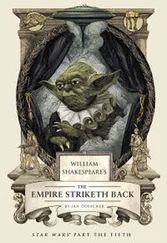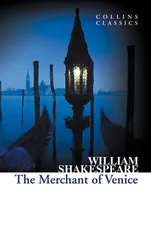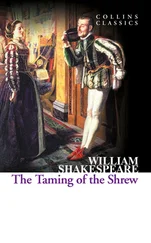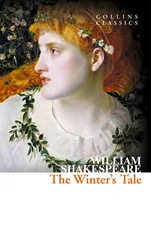William Shakespeare - The Sonnets
Здесь есть возможность читать онлайн «William Shakespeare - The Sonnets» — ознакомительный отрывок электронной книги совершенно бесплатно, а после прочтения отрывка купить полную версию. В некоторых случаях можно слушать аудио, скачать через торрент в формате fb2 и присутствует краткое содержание. Жанр: Классическая проза, на английском языке. Описание произведения, (предисловие) а так же отзывы посетителей доступны на портале библиотеки ЛибКат.
- Название:The Sonnets
- Автор:
- Жанр:
- Год:неизвестен
- ISBN:нет данных
- Рейтинг книги:4 / 5. Голосов: 1
-
Избранное:Добавить в избранное
- Отзывы:
-
Ваша оценка:
- 80
- 1
- 2
- 3
- 4
- 5
The Sonnets: краткое содержание, описание и аннотация
Предлагаем к чтению аннотацию, описание, краткое содержание или предисловие (зависит от того, что написал сам автор книги «The Sonnets»). Если вы не нашли необходимую информацию о книге — напишите в комментариях, мы постараемся отыскать её.
The Sonnets — читать онлайн ознакомительный отрывок
Ниже представлен текст книги, разбитый по страницам. Система сохранения места последней прочитанной страницы, позволяет с удобством читать онлайн бесплатно книгу «The Sonnets», без необходимости каждый раз заново искать на чём Вы остановились. Поставьте закладку, и сможете в любой момент перейти на страницу, на которой закончили чтение.
Интервал:
Закладка:
And rather make them born to our desire,
Than think that we before have heard them told:
Thy registers and thee I both defy,
Not wond'ring at the present, nor the past,
For thy records, and what we see doth lie,
Made more or less by thy continual haste:
This I do vow and this shall ever be,
I will be true despite thy scythe and thee.
If my dear love were but the child of state,
It might for Fortune's bastard be unfathered,
As subject to time's love or to time's hate,
Weeds among weeds, or flowers with flowers gathered.
No it was builded far from accident,
It suffers not in smiling pomp, nor falls
Under the blow of thralled discontent,
Whereto th' inviting time our fashion calls:
It fears not policy that heretic,
Which works on leases of short-numbered hours,
But all alone stands hugely politic,
That it nor grows with heat, nor drowns with showers.
To this I witness call the fools of time,
Which die for goodness, who have lived for crime.
Were't aught to me I bore the canopy,
With my extern the outward honouring,
Or laid great bases for eternity,
Which proves more short than waste or ruining?
Have I not seen dwellers on form and favour
Lose all, and more by paying too much rent
For compound sweet; forgoing simple savour,
Pitiful thrivers in their gazing spent?
No, let me be obsequious in thy heart,
And take thou my oblation, poor but free,
Which is not mixed with seconds, knows no art,
But mutual render, only me for thee.
Hence, thou suborned informer, a true soul
When most impeached, stands least in thy control.
O thou my lovely boy who in thy power,
Dost hold Time's fickle glass his fickle hour:
Who hast by waning grown, and therein show'st,
Thy lovers withering, as thy sweet self grow'st.
If Nature (sovereign mistress over wrack)
As thou goest onwards still will pluck thee back,
She keeps thee to this purpose, that her skill
May time disgrace, and wretched minutes kill.
Yet fear her O thou minion of her pleasure,
She may detain, but not still keep her treasure!
Her audit (though delayed) answered must be,
And her quietus is to render thee.
In the old age black was not counted fair,
Or if it were it bore not beauty's name:
But now is black beauty's successive heir,
And beauty slandered with a bastard shame,
For since each hand hath put on nature's power,
Fairing the foul with art's false borrowed face,
Sweet beauty hath no name no holy bower,
But is profaned, if not lives in disgrace.
Therefore my mistress' eyes are raven black,
Her eyes so suited, and they mourners seem,
At such who not born fair no beauty lack,
Slandering creation with a false esteem,
Yet so they mourn becoming of their woe,
That every tongue says beauty should look so.
How oft when thou, my music, music play'st,
Upon that blessed wood whose motion sounds
With thy sweet fingers when thou gently sway'st
The wiry concord that mine ear confounds,
Do I envy those jacks that nimble leap,
To kiss the tender inward of thy hand,
Whilst my poor lips which should that harvest reap,
At the wood's boldness by thee blushing stand.
To be so tickled they would change their state
And situation with those dancing chips,
O'er whom thy fingers walk with gentle gait,
Making dead wood more blest than living lips,
Since saucy jacks so happy are in this,
Give them thy fingers, me thy lips to kiss.
Th' expense of spirit in a waste of shame
Is lust in action, and till action, lust
Is perjured, murd'rous, bloody full of blame,
Savage, extreme, rude, cruel, not to trust,
Enjoyed no sooner but despised straight,
Past reason hunted, and no sooner had
Past reason hated as a swallowed bait,
On purpose laid to make the taker mad.
Mad in pursuit and in possession so,
Had, having, and in quest, to have extreme,
A bliss in proof and proved, a very woe,
Before a joy proposed behind a dream.
All this the world well knows yet none knows well,
To shun the heaven that leads men to this hell.
My mistress' eyes are nothing like the sun,
Coral is far more red, than her lips red,
If snow be white, why then her breasts are dun:
If hairs be wires, black wires grow on her head:
I have seen roses damasked, red and white,
But no such roses see I in her cheeks,
And in some perfumes is there more delight,
Than in the breath that from my mistress reeks.
I love to hear her speak, yet well I know,
That music hath a far more pleasing sound:
I grant I never saw a goddess go,
My mistress when she walks treads on the ground.
And yet by heaven I think my love as rare,
As any she belied with false compare.
Thou art as tyrannous, so as thou art,
As those whose beauties proudly make them cruel;
For well thou know'st to my dear doting heart
Thou art the fairest and most precious jewel.
Yet in good faith some say that thee behold,
Thy face hath not the power to make love groan;
To say they err, I dare not be so bold,
Although I swear it to my self alone.
And to be sure that is not false I swear,
A thousand groans but thinking on thy face,
One on another's neck do witness bear
Thy black is fairest in my judgment's place.
In nothing art thou black save in thy deeds,
And thence this slander as I think proceeds.
Thine eyes I love, and they as pitying me,
Knowing thy heart torment me with disdain,
Have put on black, and loving mourners be,
Looking with pretty ruth upon my pain.
And truly not the morning sun of heaven
Better becomes the grey cheeks of the east,
Nor that full star that ushers in the even
Doth half that glory to the sober west
As those two mourning eyes become thy face:
O let it then as well beseem thy heart
To mourn for me since mourning doth thee grace,
And suit thy pity like in every part.
Then will I swear beauty herself is black,
And all they foul that thy complexion lack.
Beshrew that heart that makes my heart to groan
For that deep wound it gives my friend and me;
Is't not enough to torture me alone,
But slave to slavery my sweet'st friend must be?
Me from my self thy cruel eye hath taken,
And my next self thou harder hast engrossed,
Of him, my self, and thee I am forsaken,
A torment thrice three-fold thus to be crossed:
Prison my heart in thy steel bosom's ward,
But then my friend's heart let my poor heart bail,
Whoe'er keeps me, let my heart be his guard,
Thou canst not then use rigour in my gaol.
And yet thou wilt, for I being pent in thee,
Perforce am thine and all that is in me.
So now I have confessed that he is thine,
And I my self am mortgaged to thy will,
My self I'll forfeit, so that other mine,
Thou wilt restore to be my comfort still:
But thou wilt not, nor he will not be free,
For thou art covetous, and he is kind,
He learned but surety-like to write for me,
Under that bond that him as fist doth bind.
The statute of thy beauty thou wilt take,
Thou usurer that put'st forth all to use,
And sue a friend, came debtor for my sake,
Читать дальшеИнтервал:
Закладка:
Похожие книги на «The Sonnets»
Представляем Вашему вниманию похожие книги на «The Sonnets» списком для выбора. Мы отобрали схожую по названию и смыслу литературу в надежде предоставить читателям больше вариантов отыскать новые, интересные, ещё непрочитанные произведения.
Обсуждение, отзывы о книге «The Sonnets» и просто собственные мнения читателей. Оставьте ваши комментарии, напишите, что Вы думаете о произведении, его смысле или главных героях. Укажите что конкретно понравилось, а что нет, и почему Вы так считаете.











